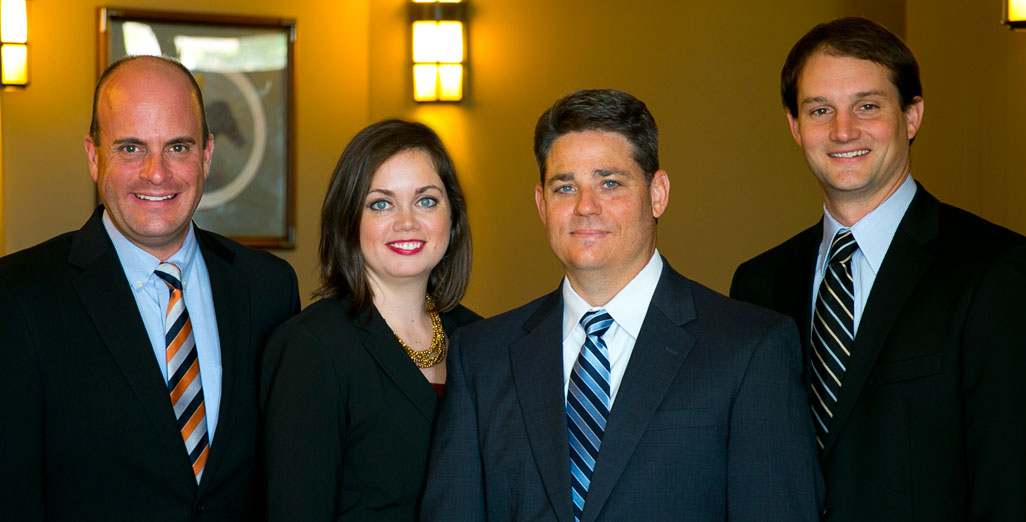Ocala, FL Guardianship
Children, the elderly, and adults who are otherwise unable to care for themselves may require the assistance of a guardian. Guardians assist people with making daily decisions, including personal and financial matters, that they may not be able to make on their own. In order to obtain guardianship over another person, you may wish to contact an experienced guardianship attorney.
Estate Planning: Guardianship
What Is Guardianship?
Guardianship is the legal process during which the court appoints a person as the guardian of another person (ward). Guardianship is necessary when someone is unable to self-govern his or her life. While guardians usually preside over the lives of minors, it is also common for guardians to be responsible for those who lack the mental capacities to provide, care, and make decisions for themselves.
Types of Guardianship
There are many types of guardianship. The most common forms of guardianship is listed below.
- Guardian of the Person: A Guardian of the Person is responsible for making everyday decisions for others, typically children. These decisions may revolve around education, healthcare, and extracurricular activities and are made when the parent is unable to do so. When financial decisions regarding the child arise, a Guardian of Estate may be appointed by the court. An estate planning attorney may be necessary when deciding who should be responsible for the child’s financial matters and how to make financial decisions that uphold the best interest of the child.
- Plenary Guardian: Plenary Guardianship allows a guardian to oversee alldecisions of the child. This includes the rights, privileges and responsibilities of both the Guardian of the Person and the Guardian of the Estate. In other words, the Plenary Guardian presides solely over the child and makes all governing decisions.
- Emergency Guardian:As suggested in the title, an Emergency Guardian is responsible for making decisions and caring for a child during unforeseen circumstances. Emergency Guardians are necessary when a child’s immediate safety and welfare are compromised.
- Interim Guardian:Interim Guardians are typically appointed by the court for an interim period of time, usually for a couple of months, until the permanent guardian and/or parent is able to resume his/her responsibilities.
- Limited Guardian:A Limited Guardian has distinct areas of responsibility over the child. A Limited Guardian’s ability to make governing decisions over the child is often limited to one or a few areas.
No matter what circumstance your family may be facing, guardianship lawyers can make the overall guardianship process simpler for you and the ward.
The Guardianship Process
A guardian can be anyone who is mentally sound/able, at least 18 years of age, and has not been convicted of a felony. Under these conditions, a person may go through the Florida guardianship process in order to become a guardian over a child or a disabled person.
The first step in the Florida guardianship process is to file a petition (or an official request) for guardianship with the court. This petition should be signed by the person who claims to be in need of guardianship.
Once the petition is filed, a hearing will be scheduled. During the hearing, evidence and any other important information can be delivered to prove that the alleged ward is unable to care for himself/herself, lacks the mental capacity to make self-governing decisions, and is unable to communicate any decisions with others. If approved, the court will appoint a guardian to care for the individual.
For children, parents must submit the petition, explaining the circumstances that may prevent them from making decisions over their children’s lives.
In most cases, the Florida guardianship process can last up to two months.
Liability of Guardianship
Because guardians exercise a large amount of autonomy and power over wards, they are also subject to much liability. They are expected to adhere to a reasonable standard of care and make sound judgements and decisions for the ward. Failure to do so may result in a lawsuit, or personal, professional, and/or academic damages to the ward. For these reasons, it may be beneficial to avoid guardianship, as the guardian becomes solely responsible for everything that happens with and/or to the ward during the specified guardianship timeframe.
Guardianship Lawyers
The Florida guardianship process is much simpler with the assistance of experienced guardianship attorneys. At McGraw, Rauba & Mutarelli, our Ocala attorneys are well-versed on guardianship laws and policies. We understand the guardianship process, the rights and responsibilities of guardians after being appointed, and how to protect both guardians and wards.
Contact our firm today to schedule an initial consultation.
